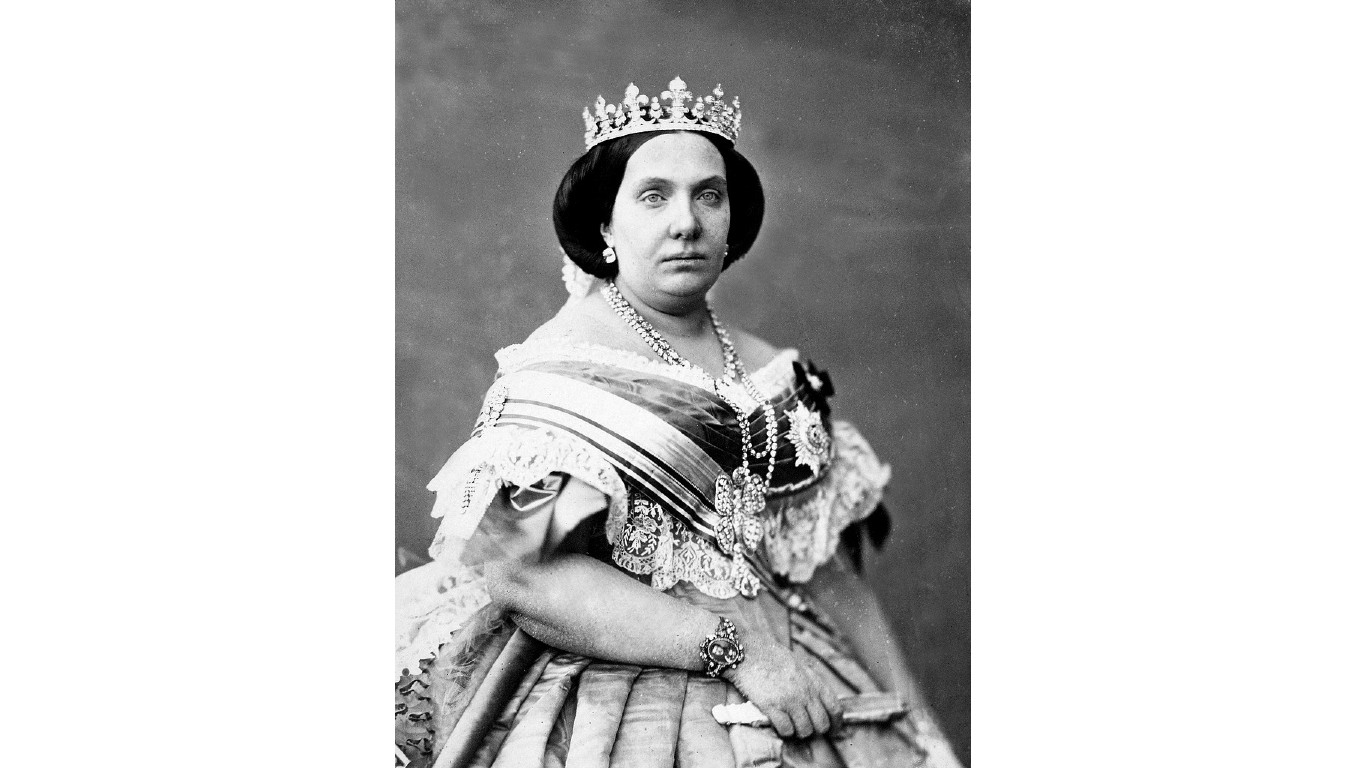
Throughout history, nations have enthroned monarchs before they’ve reached age 20. Though that may seem shocking to us in the 21st century, it’s understandable when we remember that life expectancies were much shorter in earlier times, and pragmatic decisions were often made by courts and royal families to extend dynasties.
To find the youngest rulers in history, 24/7 Tempo gathered information from a variety of sources such as Britannica, History, The European Middle Ages, and About History. Only rulers who started their reign before the age of 20 were considered.
Given the youth of these monarchs, many were mostly symbolic leaders at the start of their reign. Important decisions were made through regents and courts until they were mature enough to rule. These situations could be exploited by ambitious advisors to direct the fate of their nations. Such was the case during the reigns of King Charles II of Spain and England’s Henry VI.
Most of the tenures of these young monarchs were not very long – few lasted more than 10 years – as they were felled by disease or died in battle. For royals whose reigns extended more than two decades, such as those of Spanish monarchs Alfonso XIII and Isabella II, their time was filled with internal strife.
Some of the young monarchs on this list died in battle, such as King Wladyslaw III of Poland and Hungary, or eventually succumbed to lifelong ailments, such as King Baldwin IV, felled by leprosy. Assassination was more than just a threat for youthful Roman emperors Elagabalus and Gordian III, who were killed by their own guards or troops.
The fate of some of these monarchs had consequences for their nations. The death of Pharaoh Ptolemy XIII while fighting Julius Caesar’s legions led to the end of the Ptolemaic dynasty in Egypt. King Charles II of Spain died without an heir, which led to the War of Spanish Succession and the beginning of the end of Spain’s empire. Pu Yi’s four-year reign ended in 1912, the final chapter of more than 2,000 years of Chinese imperial rule. (These were the last rulers of long gone empires.)
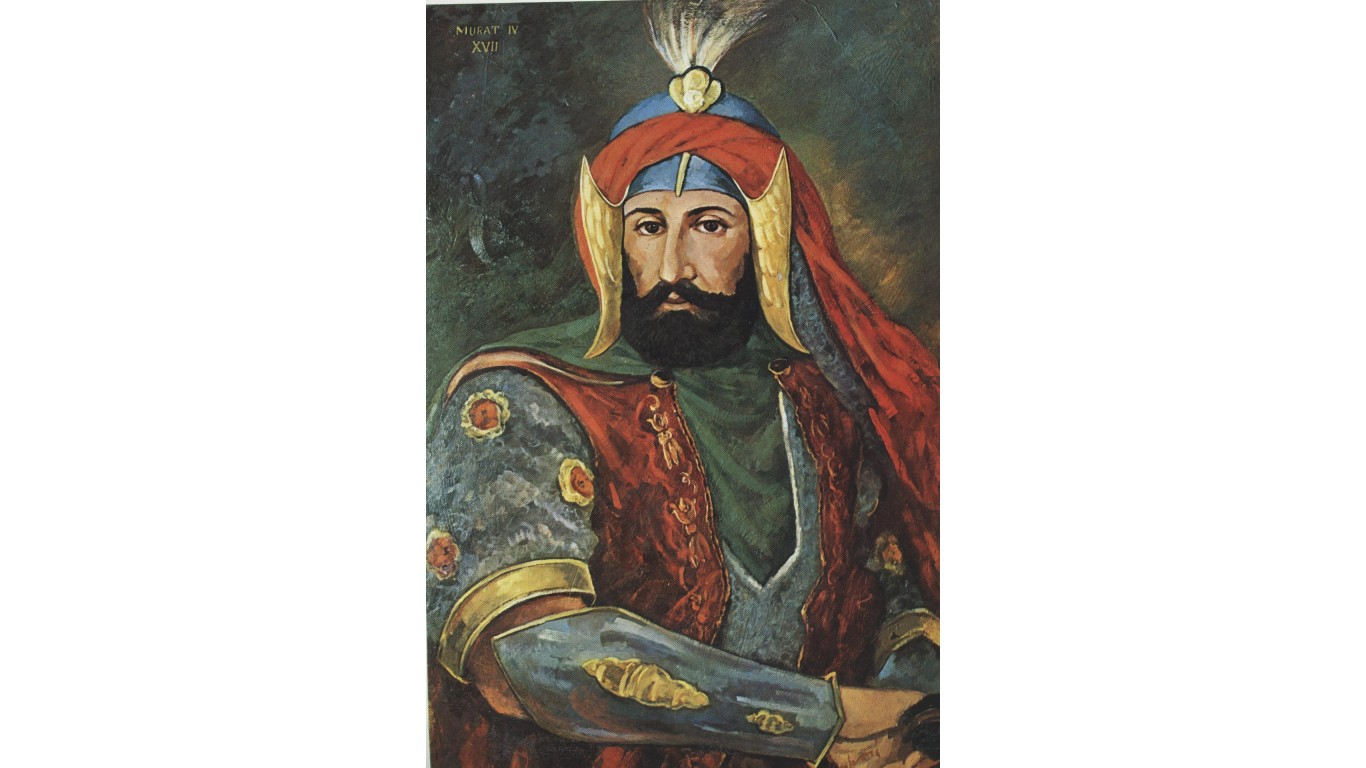
Murad IV
> Age at start of reign: 20
> Years ruled: 1632-1640
> Country: Ottoman Empire
Murad IV was one of the cruelest rulers in the history of the Ottoman Empire. Physically strong and skilled in archery and wrestling, Murad took over as sultan in 1632 and quickly imposed his will. Those who used tobacco and alcohol were punished by death. He executed hundreds of military commanders he deemed incompetent. When the Ottoman Empire sacked Baghdad in 1638, 60,000 soldiers and civilians were put to death. Murad’s reign of terror ended with his death two years later.
[in-text-ad]
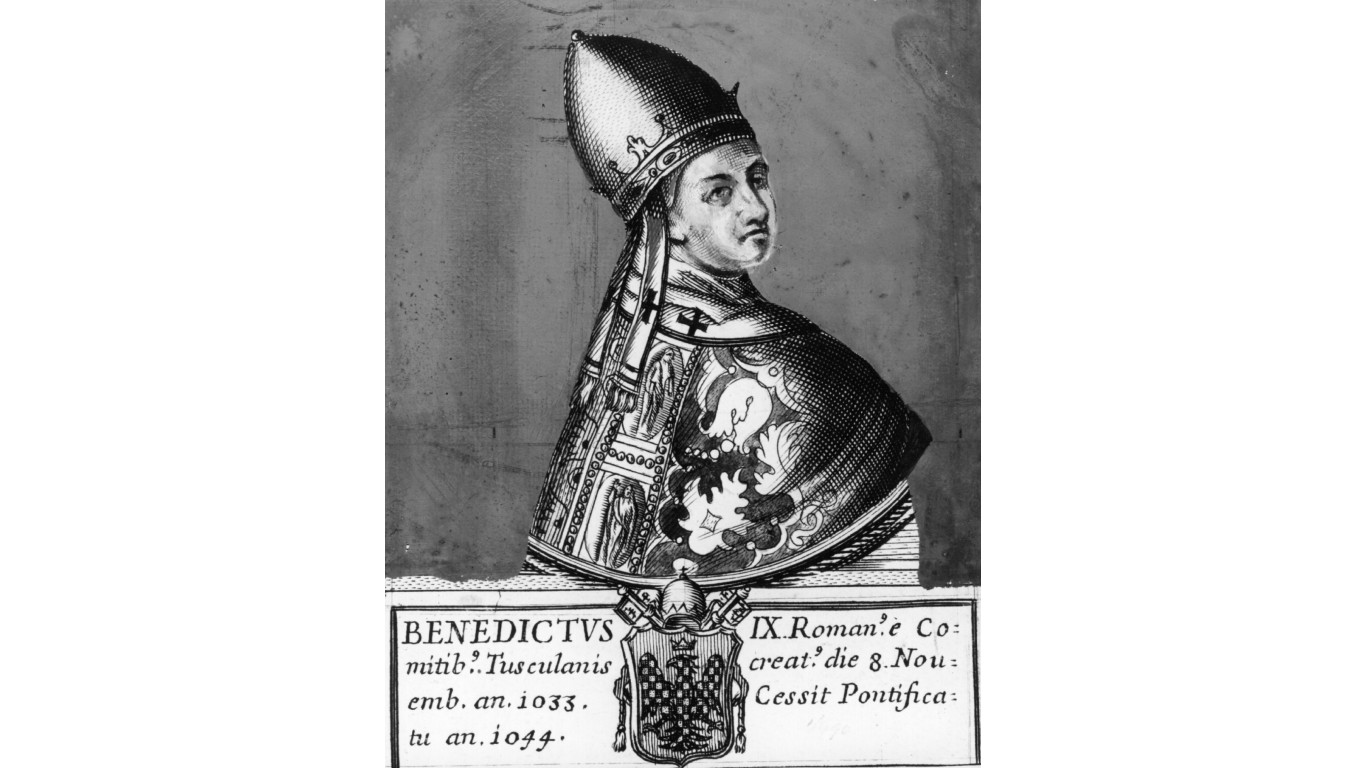
Pope Benedict IX
> Age at start of reign: 20
> Years ruled: 1032-1044, 1045, 1047-1048
> Country: Papal States
Benedict IX, nephew of two previous popes, was installed by the powerful Tusculani family. His reign was infamous for violence and immoral behavior that caused an insurrection. After he fled Rome, he and his brothers worked to undermine his successor, Sylvester III. They succeeded, but after a short time, Benedict sold the papacy to his godfather, Giovanni Graziano, a priest who became Pope Gregory VI. Benedict and Sylvester both returned to Rome to try to reclaim the papacy. The Council of Sutri, overseen by the powerful Holy Roman Emperor Henry III, invalidated all of their claims, and a Saxon bishop became Pope Clement II. When he passed away, Benedict briefly became pope for a third time, but German troops under Henry drove Benedict out of Rome for good.
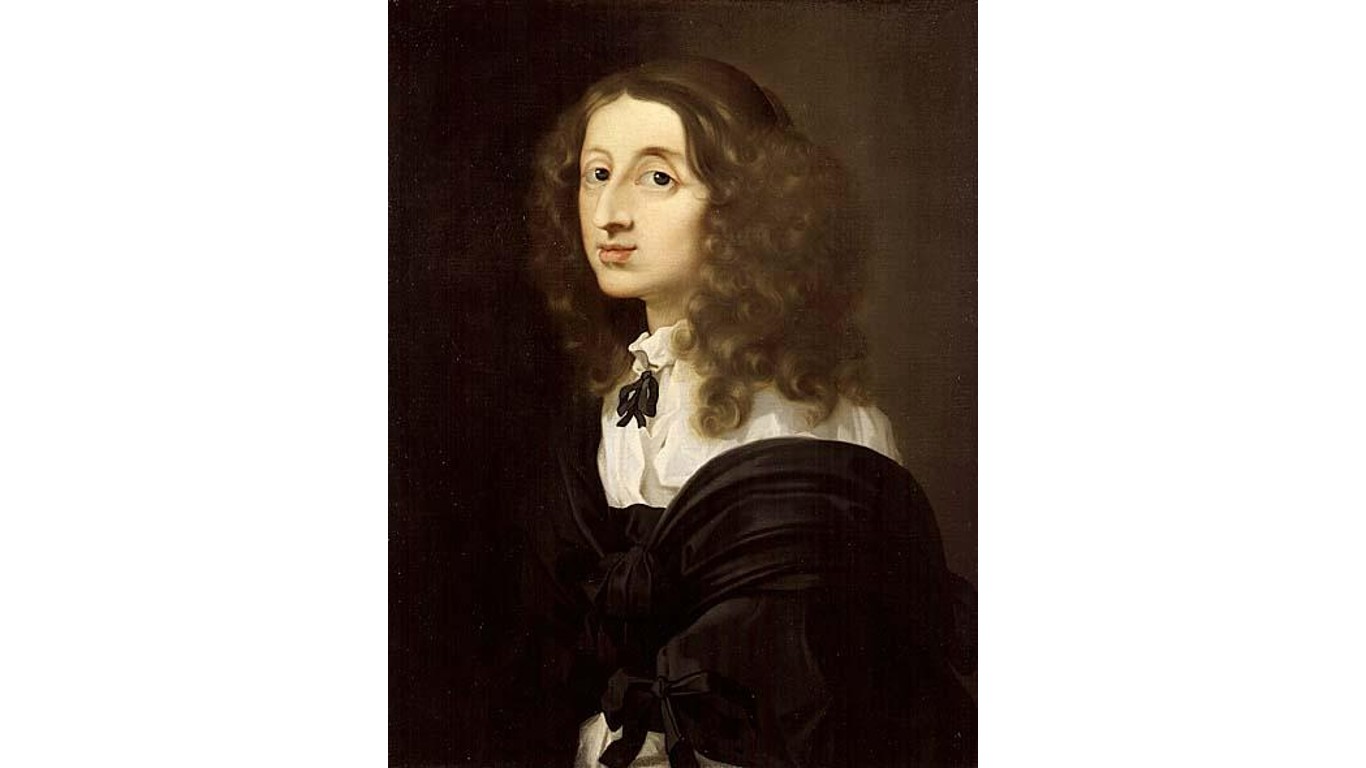
Queen Christina
> Age at start of reign: 18
> Years ruled: 1644-1654
> Country: Sweden
Queen Christina ascended to the Swedish throne at age 6, upon the death of her father, King Gustav II Adolf, in battle, but officially became Sweden’s ruler when she came of age in 1644. Christina was tutored by philosopher René Descartes and was a patron of the arts and culture, helping Sweden become a cultural center. During her reign, Sweden started colonization efforts in North America and established a settlement in what is now Wilmington, Delaware. Christina converted to Catholicism from Lutheranism, the predominant religion in Sweden. That, and the fact that ruling as queen was too stressful, were possible reasons why she abdicated in favor of her cousin, Charles X. Gustav, in 1654.
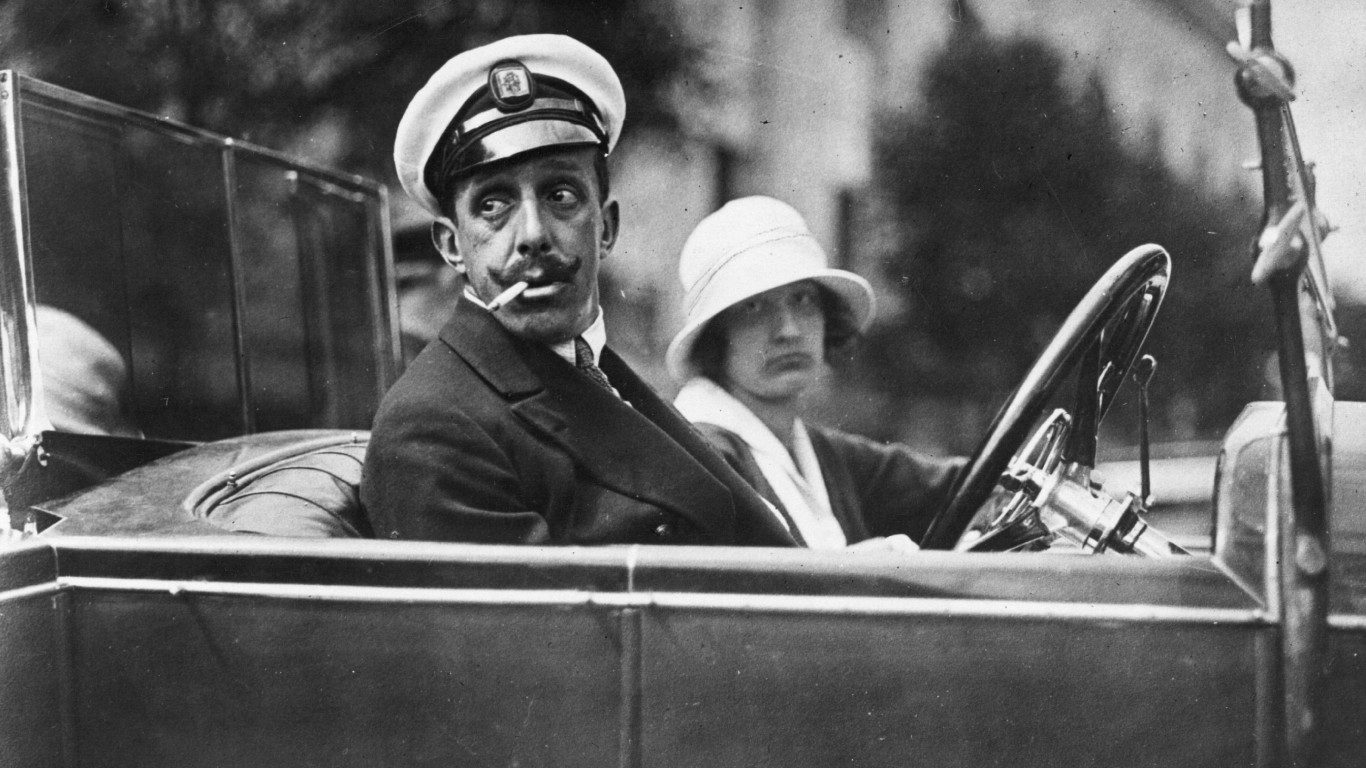
Alfonso XIII
> Age at start of reign: 16
> Years ruled: 1902-1931
> Country: Spain
The reign of Alfonso XIII in Spain was tumultuous. Upon his ascension to the throne, Alfonso continued the tradition of alternating conservative and liberal governments. But he became too intrusive in parliamentary decisions, contributing to political instability and later leading to attempts on his life. Alfonso was blamed for military setbacks in the Moroccan War in 1921 and a military coup followed the fiasco. He tried to restore constitutional government and in the elections in 1931, the victorious republican and socialist parties demanded that he abdicate. He never did, but with Spain teetering on the verge of civil war, he left Spain and died in Rome in 1941.
[in-text-ad-2]
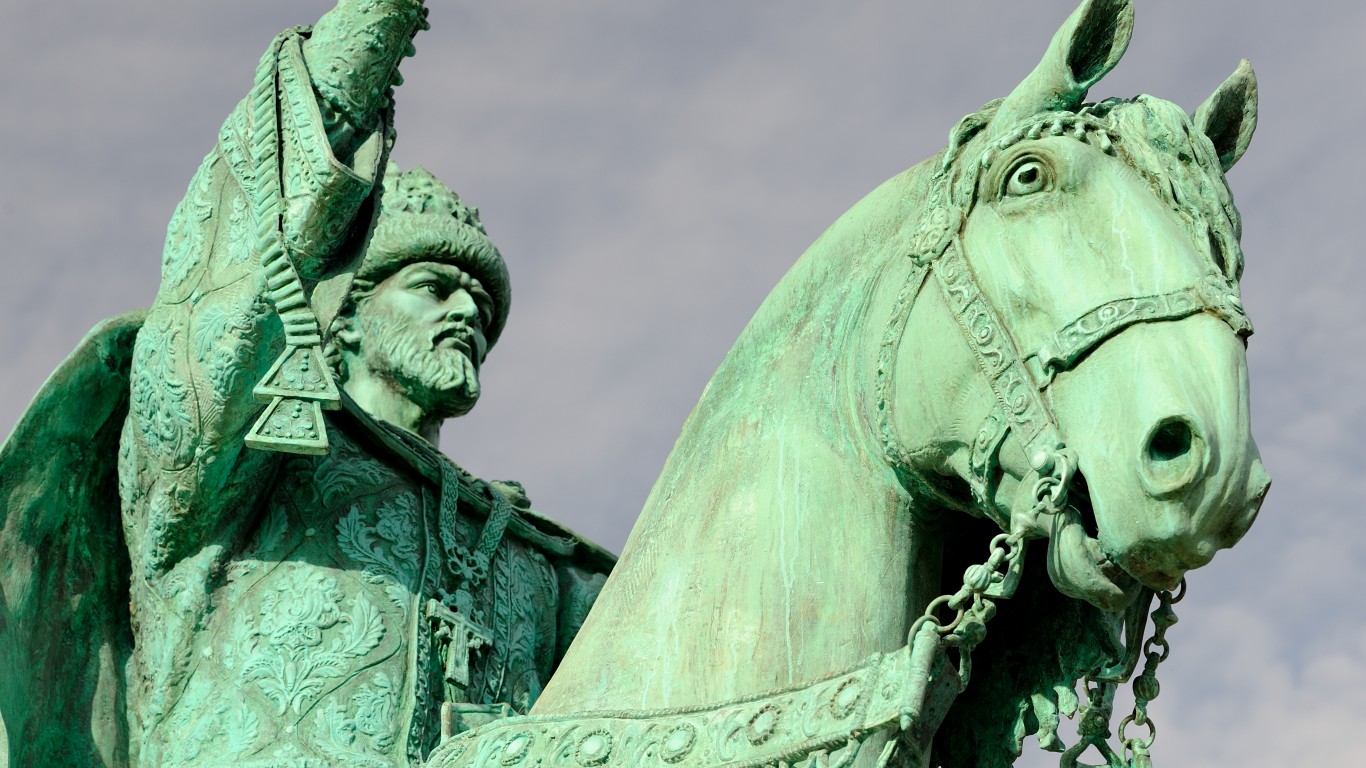
Ivan the IV
> Age at start of reign: 16
> Years ruled: 1547-1584
> Country: Russia
History knows Ivan the IV as Ivan the Terrible. He ascended to the throne upon the death of his mother who had ruled in Ivan’s name. Her death set off a power struggle among the hereditary nobility known as the boyars that would affect Ivan for the rest of his life. Ivan began a series of reforms in government, the legal system, and the military. These actions also included limiting the power of the aristocracy and centralizing the government. Ivan also sought closer contact with Europe. During his reign, he fought long and mostly unsuccessful wars with Poland and Sweden. He had more success in the south and east, beating back the Tatars and extending the empire to the Volga River. In his later years, he conducted a reign of terror against the boyars and others that he believed opposed him.
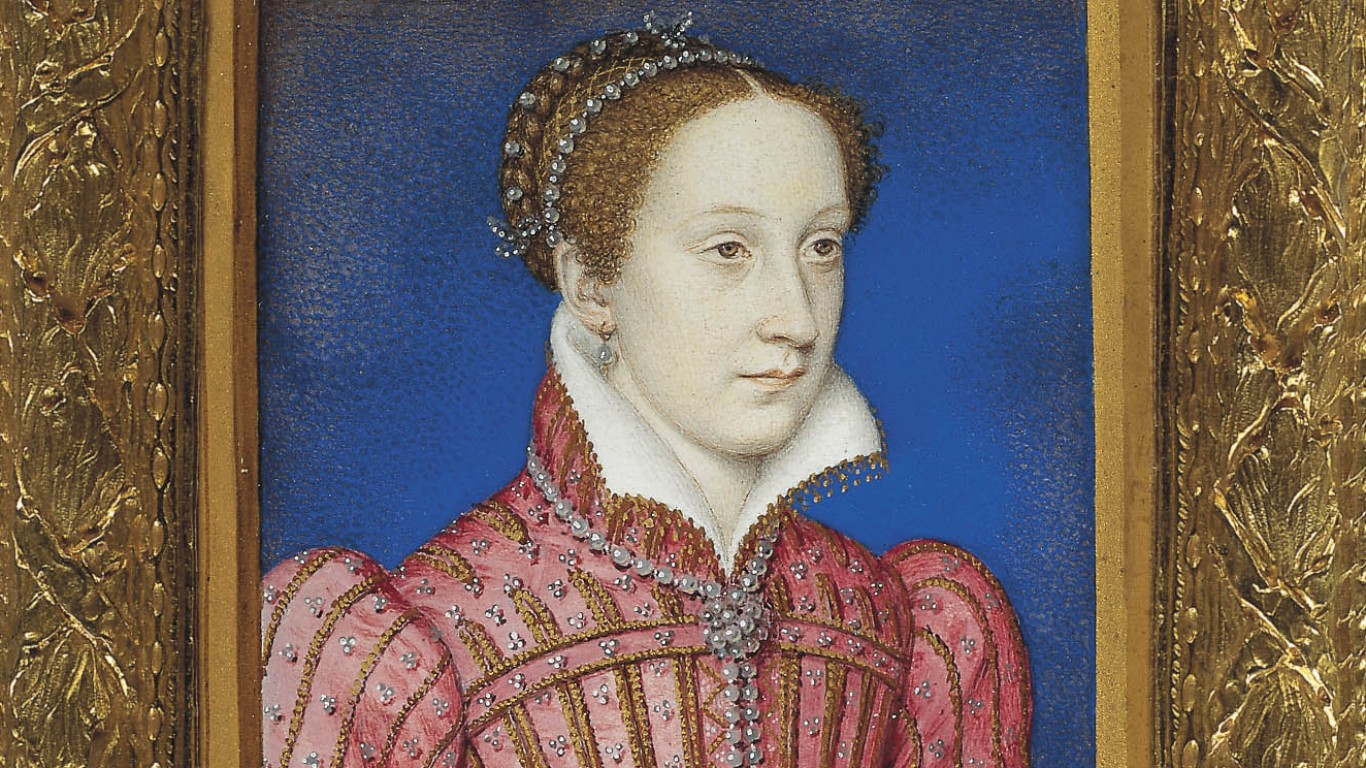
Mary, Queen of Scots
> Age at start of reign: 16
> Years ruled: 1559-1567
> Country: France, Scotland
Mary, Queen of Scots is one of Scotland’s most celebrated monarchs. Technically, she ascended to the throne upon the death of her father, James V, when she was only six days old. At the age of 6, she was betrothed to Francis, the future ruler of France, and sent to that country to be brought up. At 16, she married him, becoming queen consort of France. After his death two years later, she returned to Scotland to assume the throne there. She was forced to abdicate following a revolt in 1567 and fled to England. She became a pawn of the English who eventually imprisoned her for 19 years and then executed her, claiming she tried to overthrow Queen Elizabeth I.
[in-text-ad]
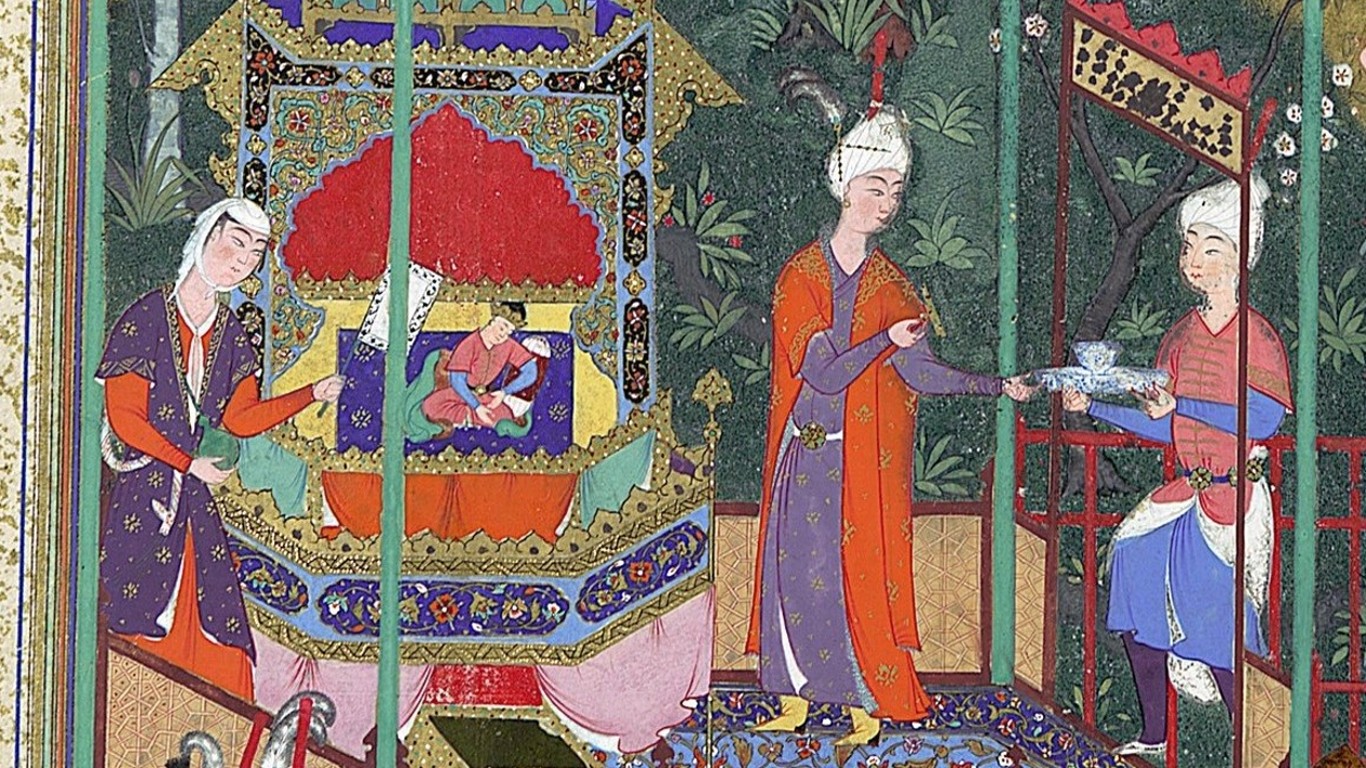
Shapur II
> Age at start of reign: 16
> Years ruled: 325-379
> Country: Sasanian Empire
Shapur II became the Sasanian emperor in Persia under violent circumstances. He was born after the death of his father, then one of his brothers was slain by nobles and the other was blinded. When Shapur II turned 16 in 325, he began a brutal campaign to subdue Arab tribes and gain security for the empire’s borders. Shapur drove the tribes to the Arabian Peninsula. He also conducted war against the Roman Empire in the West and eventually defeated Rome in Armenia.
Emperor Elagabalus
> Age at start of reign: 15
> Years ruled: 218-222
> Country: Roman Empire
Elagabalus ruled Rome for four years, and for many Romans, that was four years too many. Born in Syria, he made the Syrian sun god Elagabal the empire’s chief deity, antagonizing Romans. He also shocked Rome with his sexual excesses. Elagabalus flouted Roman convention by allowing his mother to enter the men-only senate, and married a member of the priestess class who was supposed to remain a virgin. Elagabalus’ behavior led to his assassination by Rome’s praetorian guard in 222.
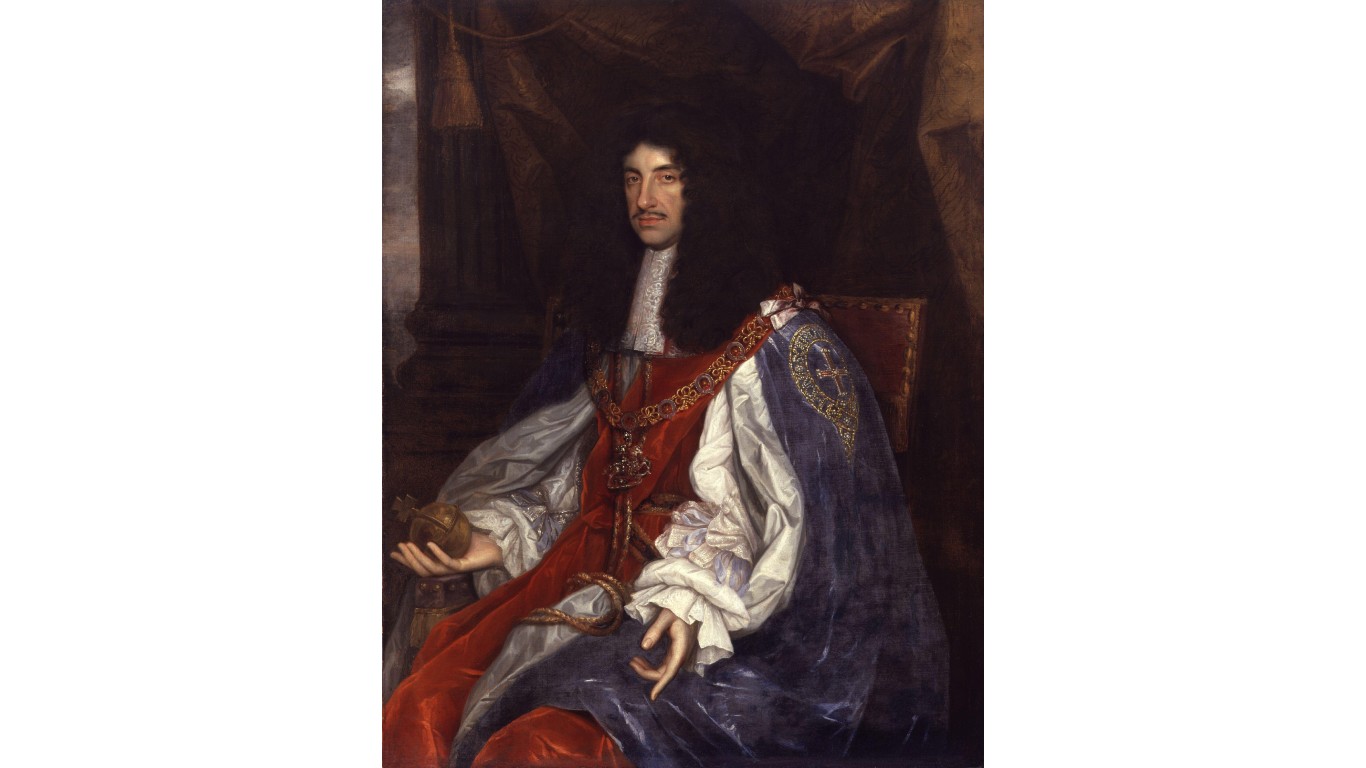
King Charles II
> Age at start of reign: 14
> Years ruled: 1665-1700
> Country: Spain
Charles II was an ineffectual king of Spain known for his physical disabilities that placed him near death at various times in his life. He was the last Habsburg to sit on the Spanish throne. Charles was confronted with the imperialistic ambitions of King Louis XIV of France, court intrigue, and later the issues of succession, since he was unable to produce an heir. This led to the War of the Spanish Succession that was disastrous for Spain and began the loss of its European possessions.
[in-text-ad-2]
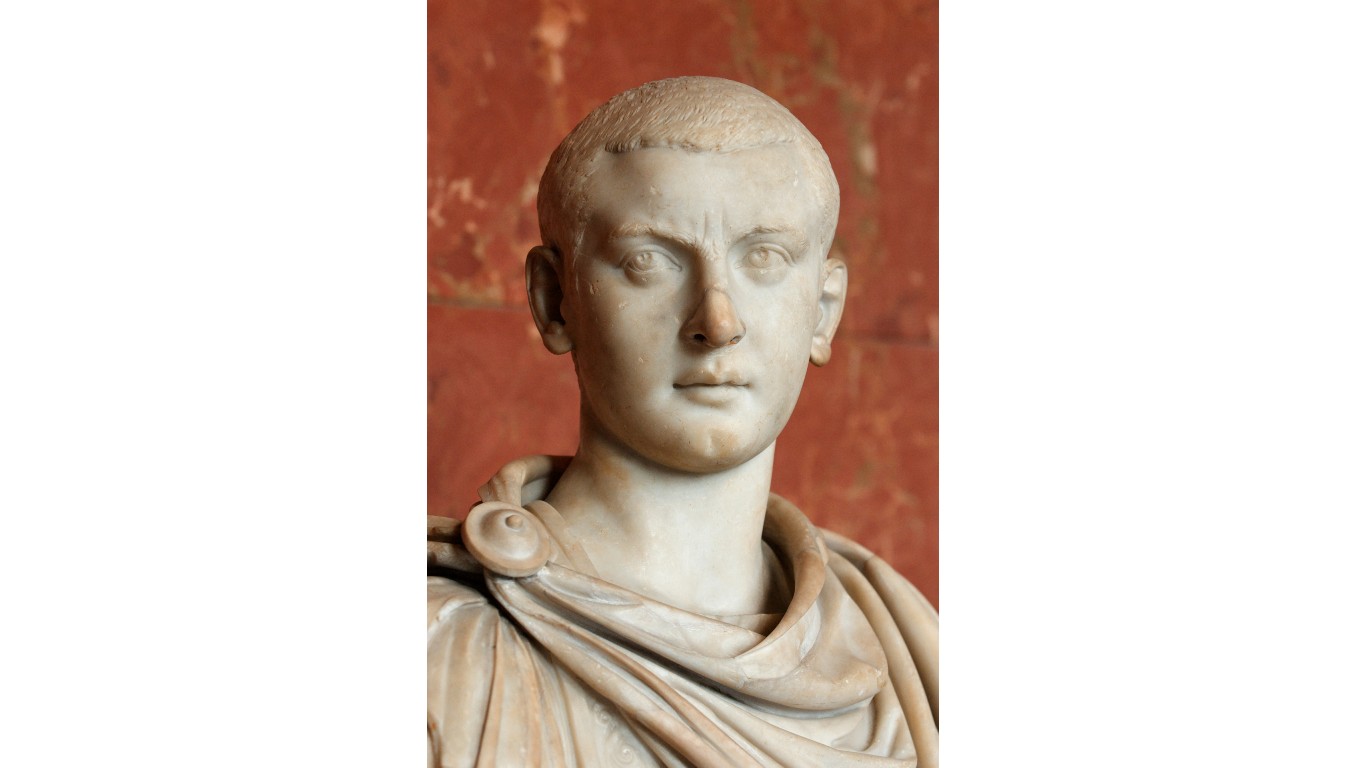
Emperor Gordian III
> Age at start of reign: 13
> Years ruled: 238-244
> Country: Rome
Following the deaths of co-emperors Gordian I and Gordian II, the Roman Senate named two senators as joint emperors. That didn’t sit well with the people of Rome and the praetorian guard. They ousted the two rulers and made another Gordian, a 13-year-old, emperor. The government was ruled through Gordian’s mother and then his father-in-law, the praetorian prefect Timesitheus. After Timesitheus died from illness in 243, he was replaced by Philip the Arabian. The following year, Gordian was killed by mutinous troops and succeeded by Philip.
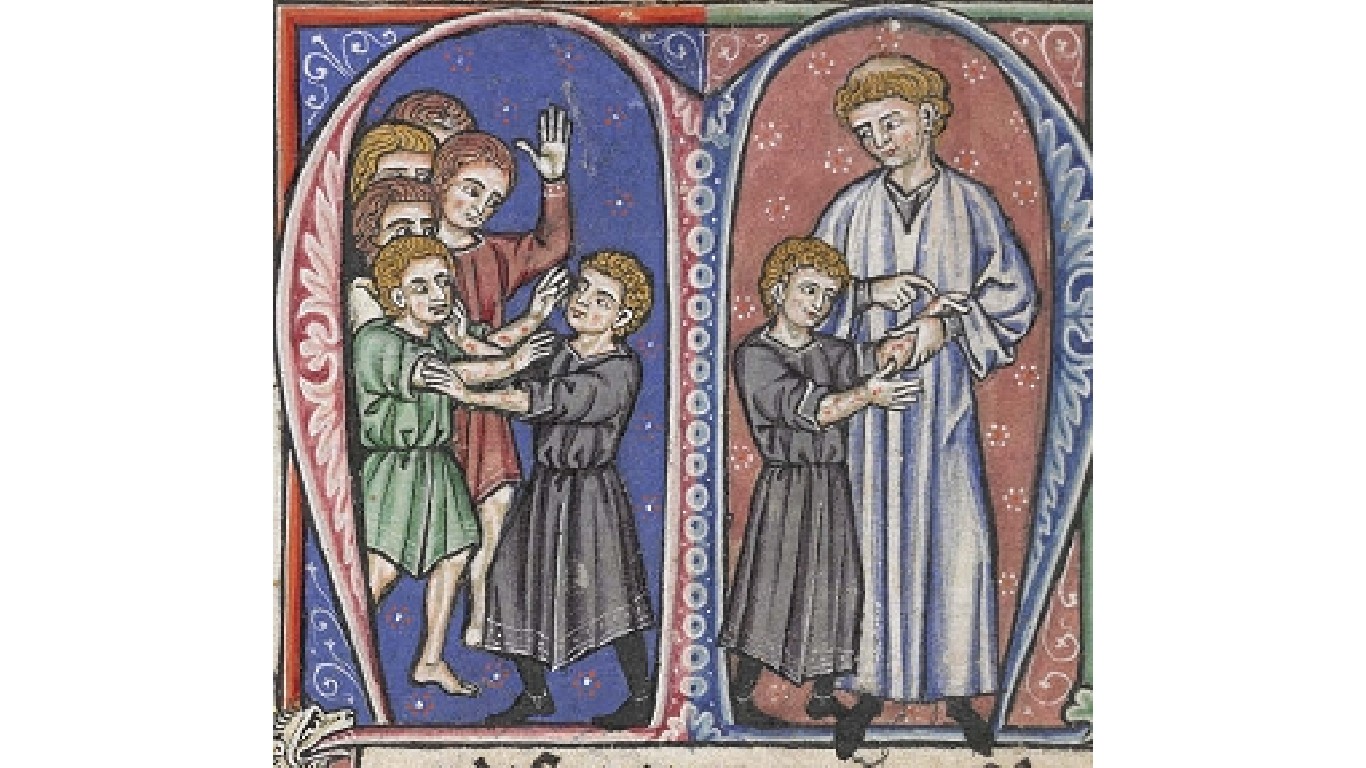
King Baldwin IV
> Age at start of reign: 13
> Years ruled: 1174-1185
> Country: Jerusalem
King Baldwin IV was afflicted by leprosy during his brief life. Baldwin’s reign would be marked by his continuous efforts to defend his Christian kingdom against Saladin, the renowned Muslim military leader who was sultan of Egypt and Syria. Baldwin managed to forge a truce with Saladin, but as his health worsened, Saladin’s strength grew. Two years after the death of Baldwin in 1185, Saladin won a crucial victory that led to the collapse of the Kingdom of Jerusalem.
[in-text-ad]

Isabella II
> Age at start of reign: 13
> Years ruled: 1843-1868
> Country: Spain
Isabella’s reign in Spain was troubled from the start. After the death of her father, Ferdinand VII, in 1833, Isabella’s right to ascend to the throne was challenged by supporters of her uncle, Don Carlos, triggering a civil war. Political instability continued during her reign. Isabella was not responsive to demands for her monarchy to be more progressive. She was unpopular in some circles because she lived apart from her husband and there were scandalous rumors about her behavior. After the deaths of trusted advisors, Isabella’s position weakened to the point where she was forced to flee to Paris in 1868. She officially abdicated in favor of her oldest son Alfonso XII in 1870.
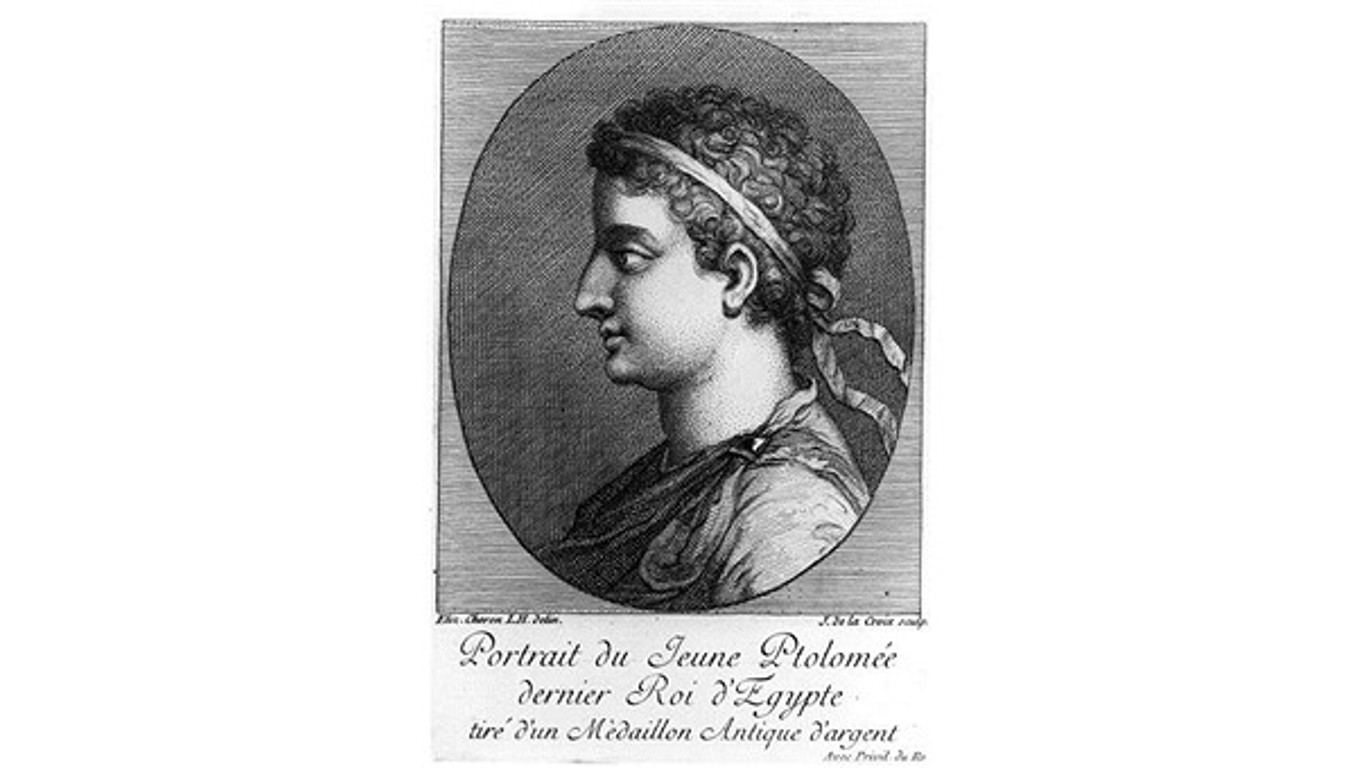
Pharaoh Ptolemy XIII
> Age at start of reign: 11
> Years ruled: 51-47 B.C.
> Country: Egypt
Ptolemy XIII ascended to the throne as co-ruler of Egypt with sister, Cleopatra VII, at the wish of their father, Ptolemy XII. Cleopatra exerted the most influence early in their reign. Young Ptolemy’s regent and court-appointed officials decided to depose Cleopatra. She fled to Syria and planned to return at the head of an army. The Roman statesman Pompey, after losing a battle with Julius Caesar, came to Ptolemy for aid. Instead, the Egyptians killed Pompey to seek an alliance with Caesar. Caesar was appalled by the assassination of Pompey and backed off from an alliance with the pharaoh. Ptolemy went to war with Caesar and lost, drowning in the Nile while fleeing from the victorious Roman armies.
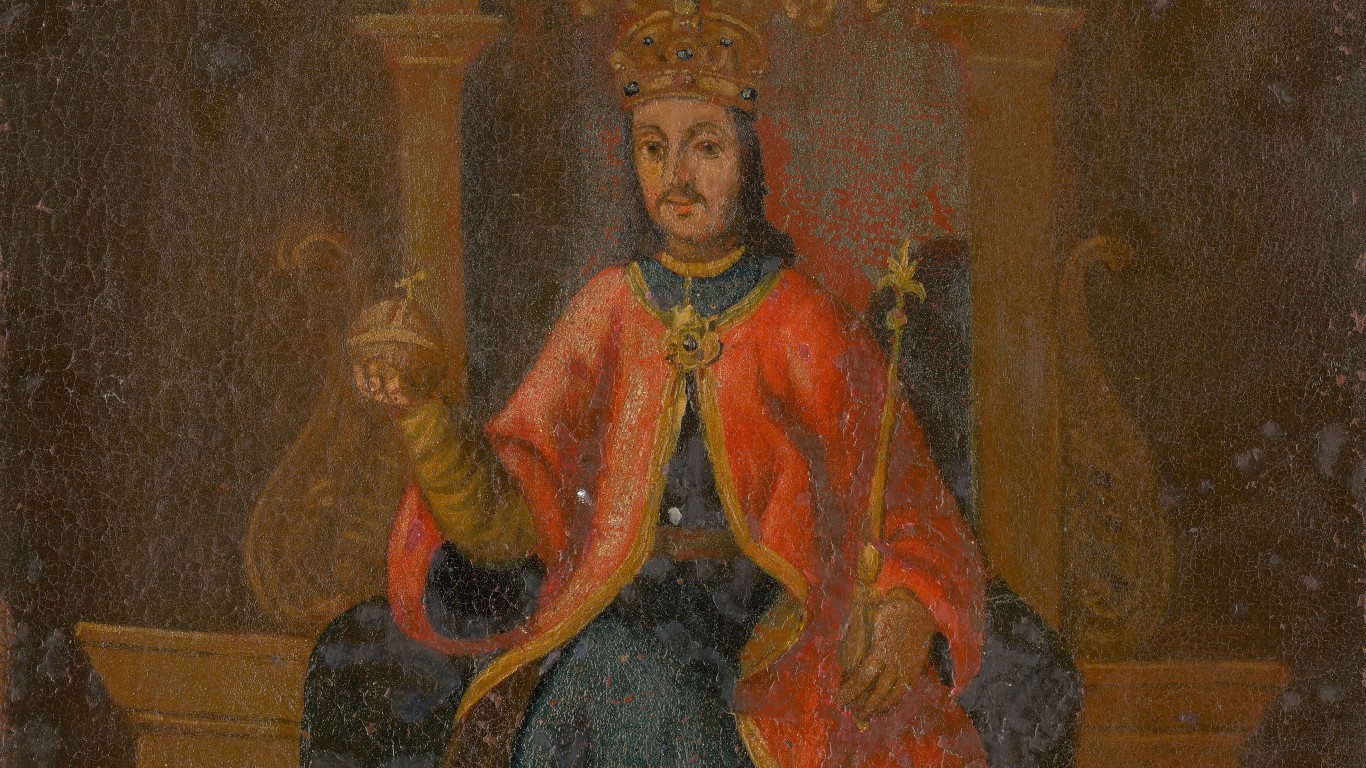
King Wladyslaw III
> Age at start of reign: 10
> Years ruled: 1434-1444
> Country: Poland, Hungary
Wladyslaw III was king of Poland and Hungary, known for defending Eastern Europe against the expanding Ottoman Empire. In 1443 he led an army of 40,000 into the Balkans against the Turks, forcing them out of Serbia and Albania and concluding a peace with Sultan Murad II. Wladyslaw then broke the peace and pushed farther into the Balkans. He was killed during the ensuing Battle of Varna, and the Poles and Hungarians were defeated.
[in-text-ad-2]
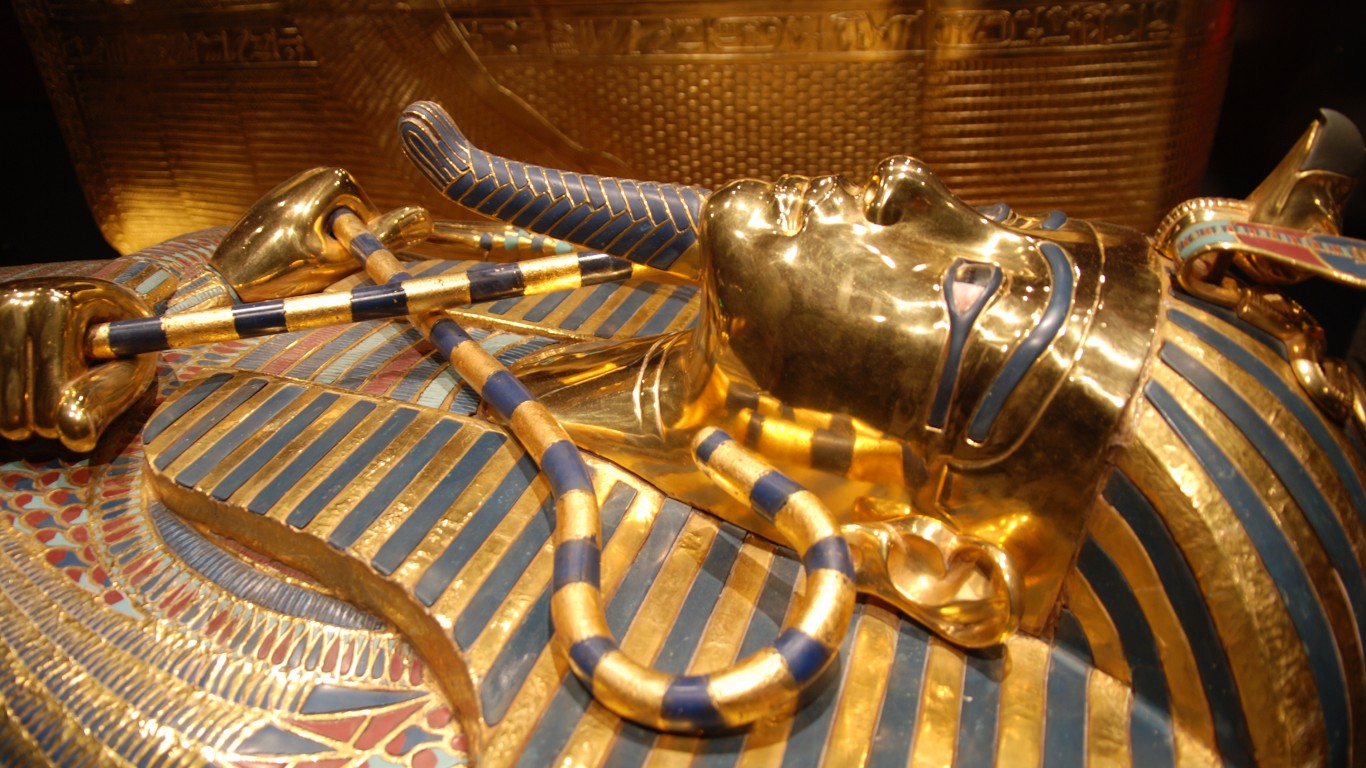
Pharaoh Tutankhamun
> Age at start of reign: 8-9
> Years ruled: 1333-1323 B.C.
> Country: Egypt
Tutankhamun – “King Tut” – became famous after his intact tomb that was found by English archeologist Howard Carter in 1922. During his lifetime, Tutankhamun restored the temples, images, and privileges of the former gods of Egypt and returned the country to polytheism. Tutankhamun died in his 19th year without designating an heir. Scientists speculate he most likely died from malaria or some kind of infection. Archeologists found 5,000 artifacts and well-preserved mummies found in the tomb.
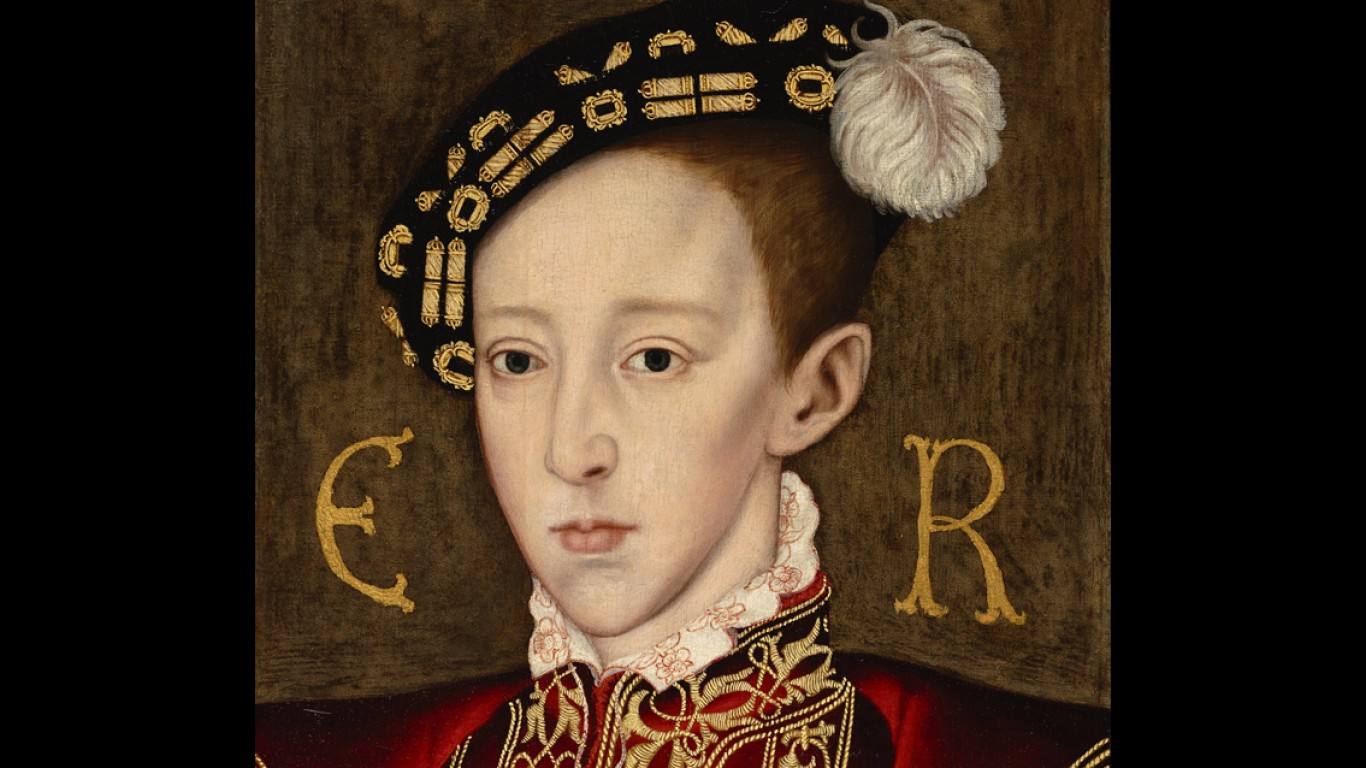
King Edward VI
> Age at start of reign: 9
> Years ruled: 1547-1553
> Country: England
King Edward VI was a sickly child during his brief life. He became king on the death of his father, Henry VIII. Edward was the first English monarch raised as a Protestant. He was better educated than previous kings, taught by tutors from Cambridge. Edward stayed away from court intrigue and infighting and instead focused on reforming the newly created Church of England. He caught tuberculosis at age 16 and died without an heir.
[in-text-ad]
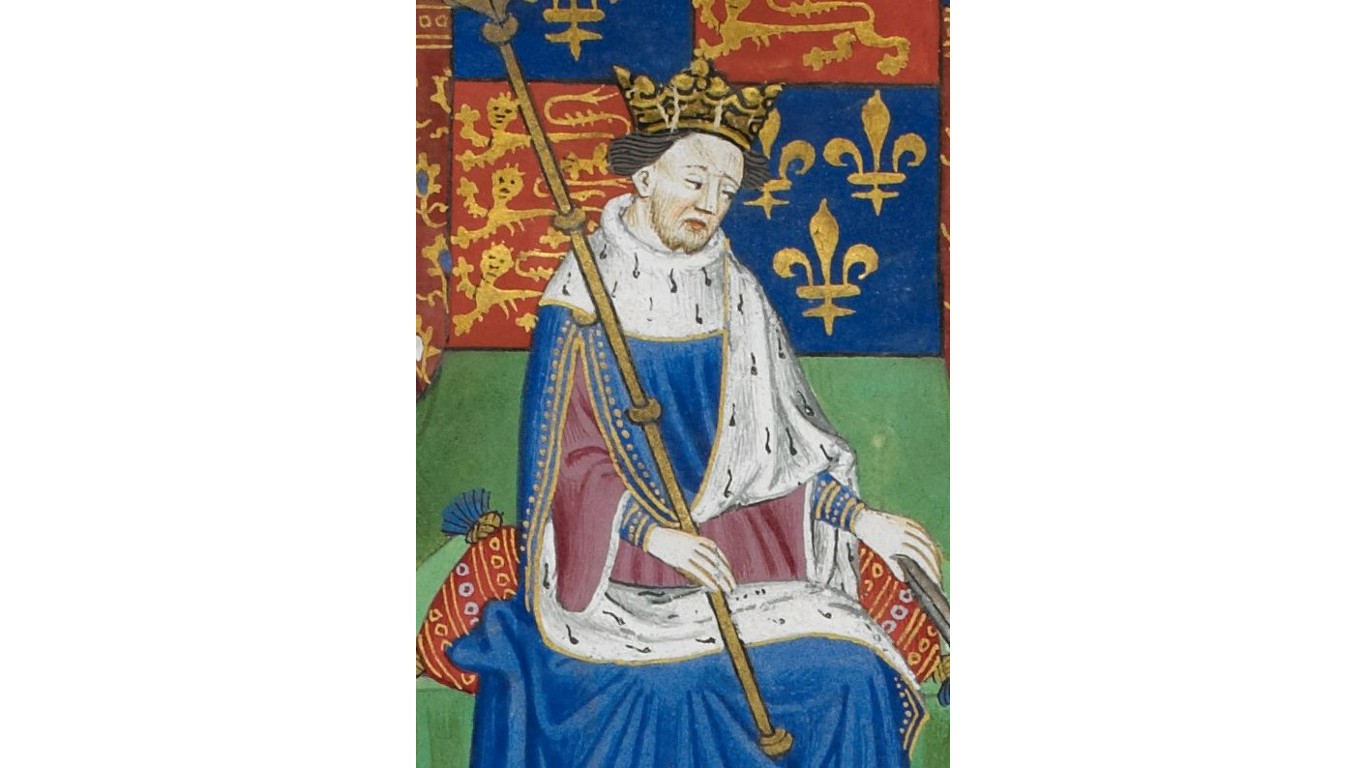
King Henry VI
> Age at start of reign: 8
> Years ruled: 1429-1471
> Country: England
Weak-willed King Henry VI ruled during the Hundred Years’ War with France and then battled internal enemies during the War of the Roses. Henry was the only English monarch ever crowned king of France. During Henry’s reign, the king was more concerned about being a pious man and less about uniting England. With the Hundred Years’ going badly for England, friction grew between the royal houses of Lancaster and York. Tensions grew more intense because of the conflict between Henry’s forceful wife Margaret and Richard, the Duke of York. The ensuing War of the Roses went badly for the Lancaster branch of royals. Henry was captured and imprisoned in the Tower of London where it is believed he was murdered.

Emperor Kaliman Asen I
> Age at start of reign: 7
> Years ruled: 1241-1246
> Country: Bulgarian Empire
The reign of Kaliman Asen I is noteworthy for the decline in power by the Bulgarian Empire. While the country was ruled by a regency in the early years of his reign, Bulgaria was invaded by the Mongols of the Golden Horde under the famed Batu Khan. The empire’s influence over neighboring Thessalonica and Serbia diminished. The emperor’s power declined as well as in the provinces of the empire. Some scholars believe Kaliman was poisoned to death.
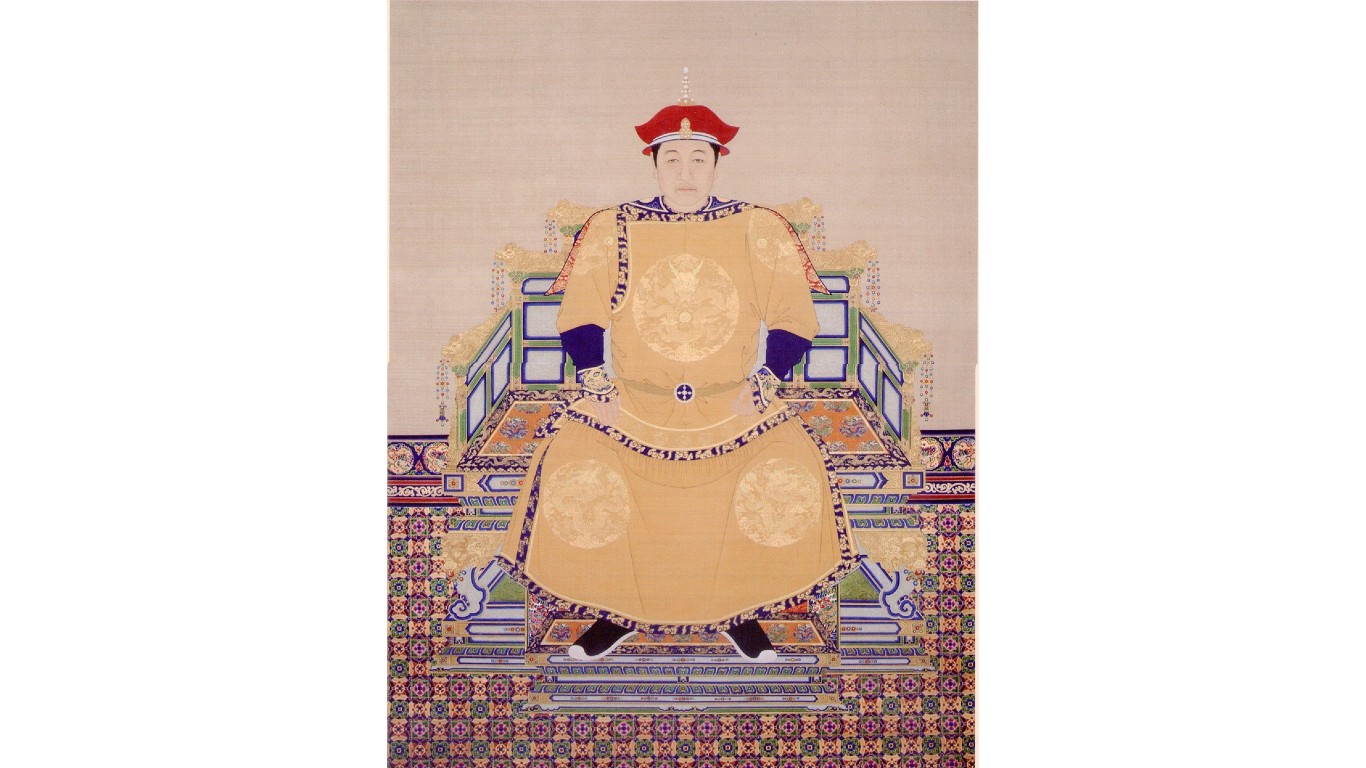
Emperor Fulin
> Age at start of reign: 5
> Years ruled: 1643-1661
> Country: China
Fulin became the third emperor of China’s Qing Dynasty at 5 years of age following the death of his father. Over the next several years, Fulin ruled under the regency of his uncle until the man died seven years later. The boy emperor tried to fight corruption and consolidate imperial power. Fulin focused on studying science and astronomy and was tolerant of other religions, entertaining the Dalai Lama and taking counsel from Jesuit missionaries. He died from smallpox at age 22.
[in-text-ad-2]
King Oyo
> Age at start of reign: 3
> Years ruled: 1995-
> Country: Uganda (Tooro)
Young monarchs still walk among us today. Oyo, the king of Tooro in Uganda, ascended to the throne in 1995 at age 3 following the death of his father King Patrick Matthew Kaboyo Olimi VII in August 1995, at the age of 49. He officially took charge of the kingdom in 2010. He rules over 3% of Uganda’s 33 million people, though his influence is largely symbolic, because the country is governed by an elected president.
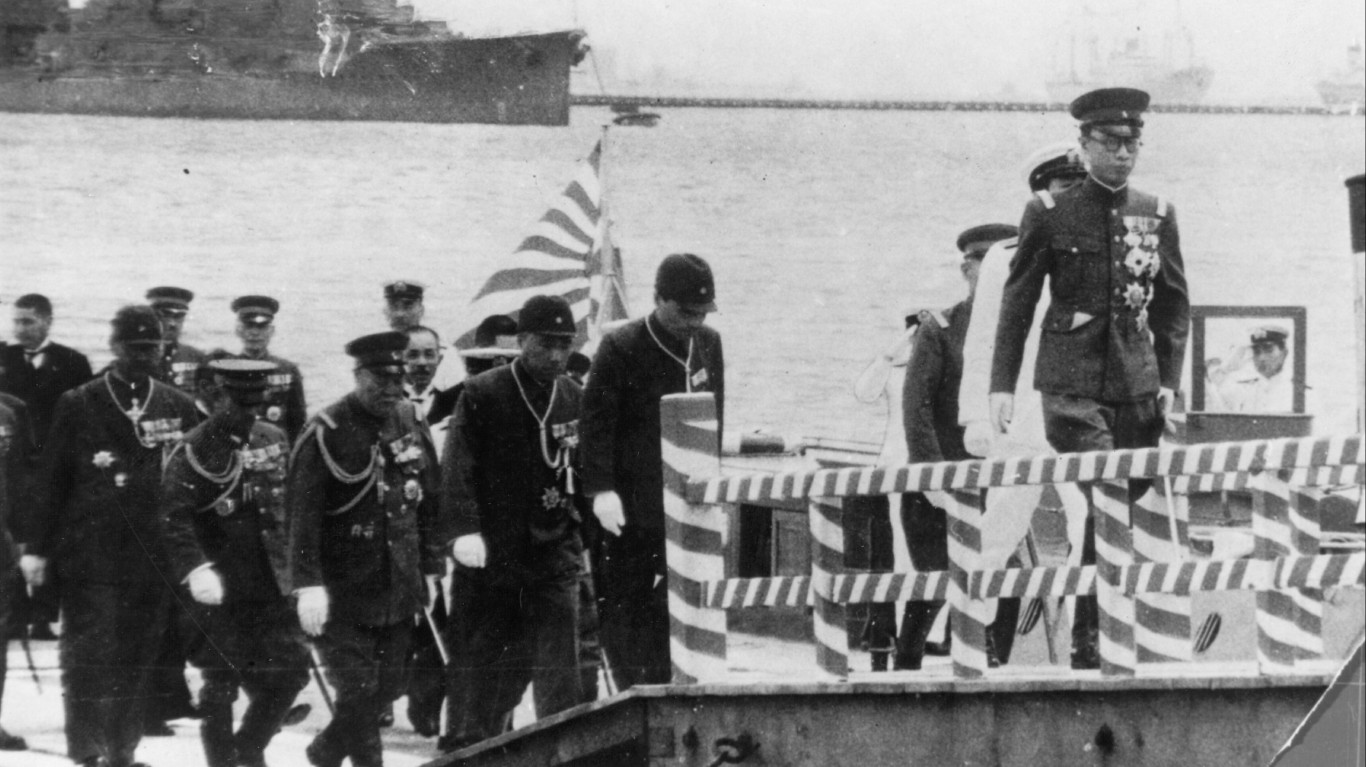
Emperor Pu Yi
> Age at start of reign: 2
> Years ruled: 1908-1912
> Country: China
Pu Yi was the last emperor of China, ending more than 2,000 years of imperial rule. After becoming emperor at age 2, he reigned for just four years before revolution in China established a republic and forced him to abdicate. He lived in the Forbidden City and then fled to Japanese-controlled Manchuria where he was propped up as emperor of Manchukuo. He was captured by the Russians at the end of WWII, imprisoned by the communists, and eventually pardoned by Mao Zedong after he converted to communism. The former emperor became a mechanical repair shop worker and died at 61.
Are You Still Paying With a Debit Card?
The average American spends $17,274 on debit cards a year, and it’s a HUGE mistake. First, debit cards don’t have the same fraud protections as credit cards. Once your money is gone, it’s gone. But more importantly you can actually get something back from this spending every time you swipe.
Issuers are handing out wild bonuses right now. With some you can earn up to 5% back on every purchase. That’s like getting a 5% discount on everything you buy!
Our top pick is kind of hard to imagine. Not only does it pay up to 5% back, it also includes a $200 cash back reward in the first six months, a 0% intro APR, and…. $0 annual fee. It’s quite literally free money for any one that uses a card regularly. Click here to learn more!
Flywheel Publishing has partnered with CardRatings to provide coverage of credit card products. Flywheel Publishing and CardRatings may receive a commission from card issuers.
Thank you for reading! Have some feedback for us?
Contact the 24/7 Wall St. editorial team.
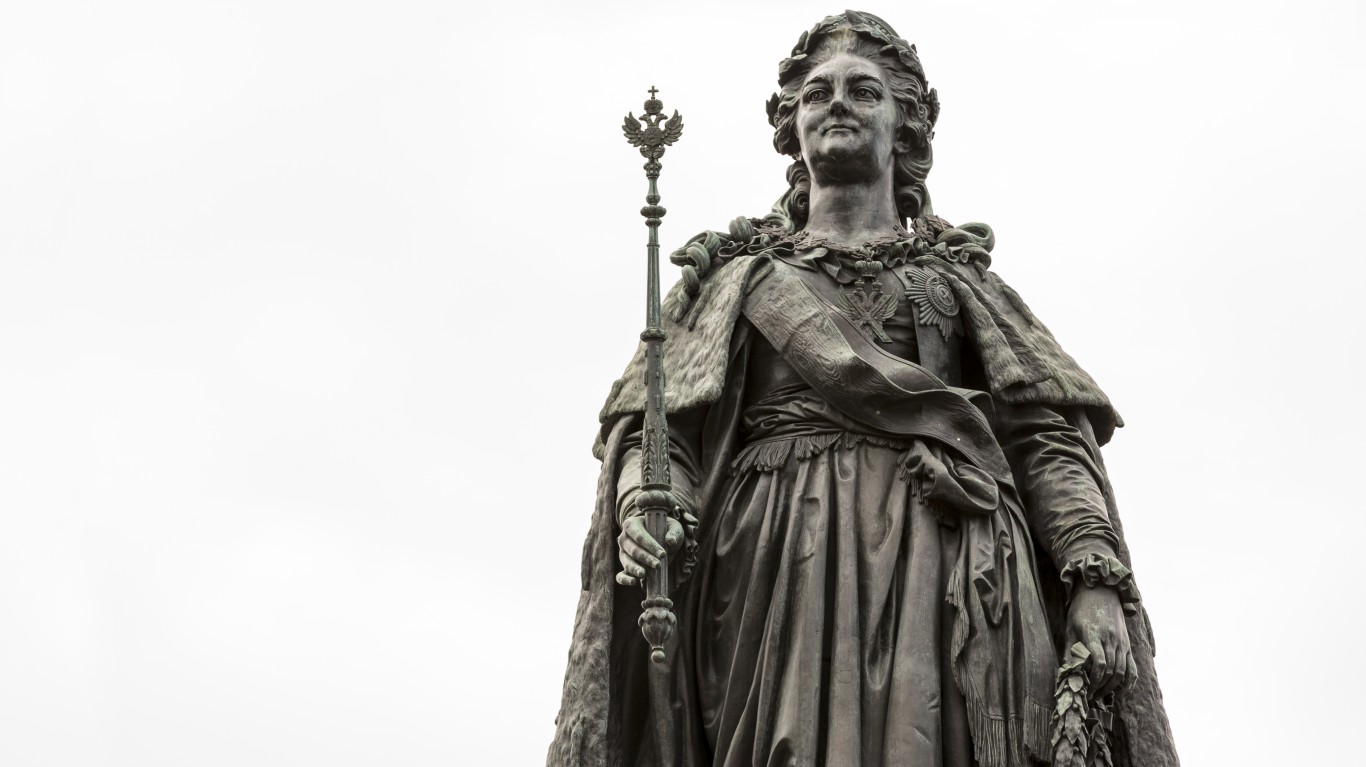 24/7 Wall St.
24/7 Wall St.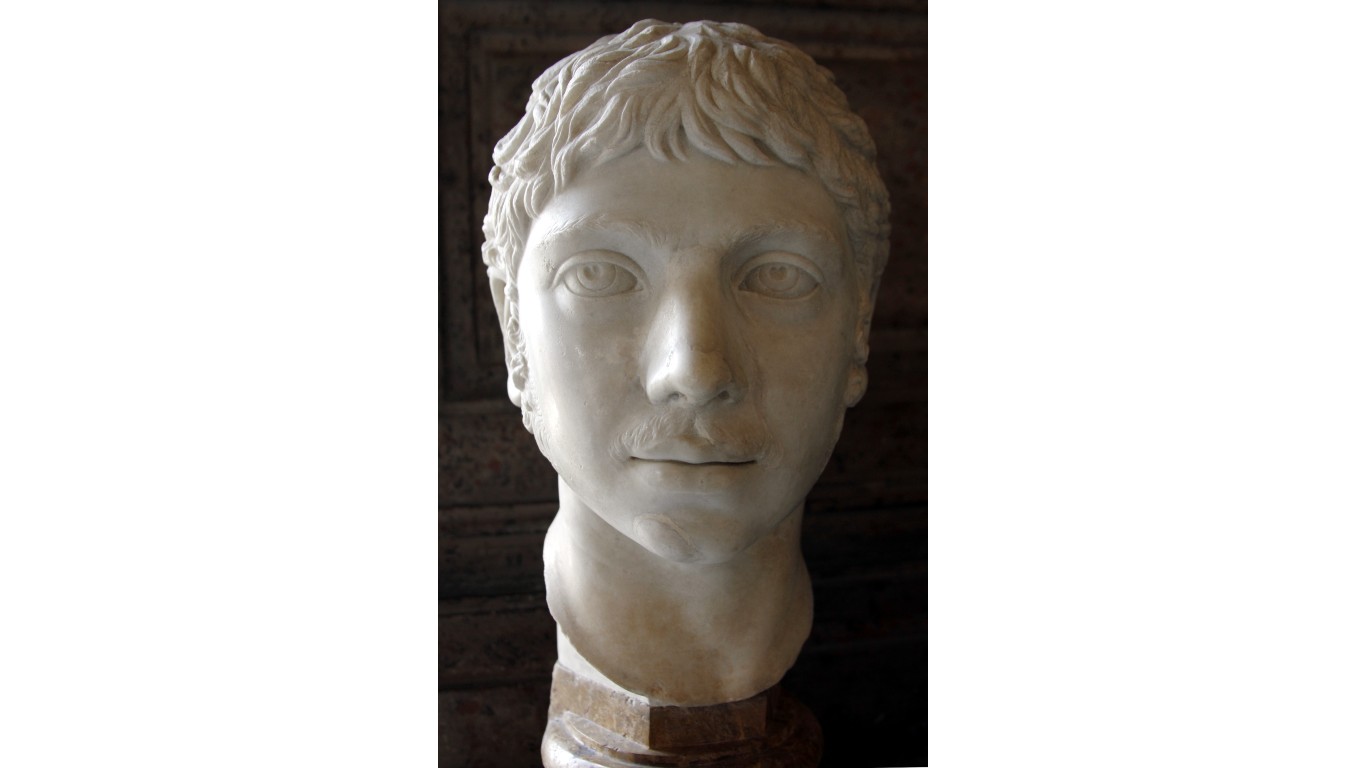
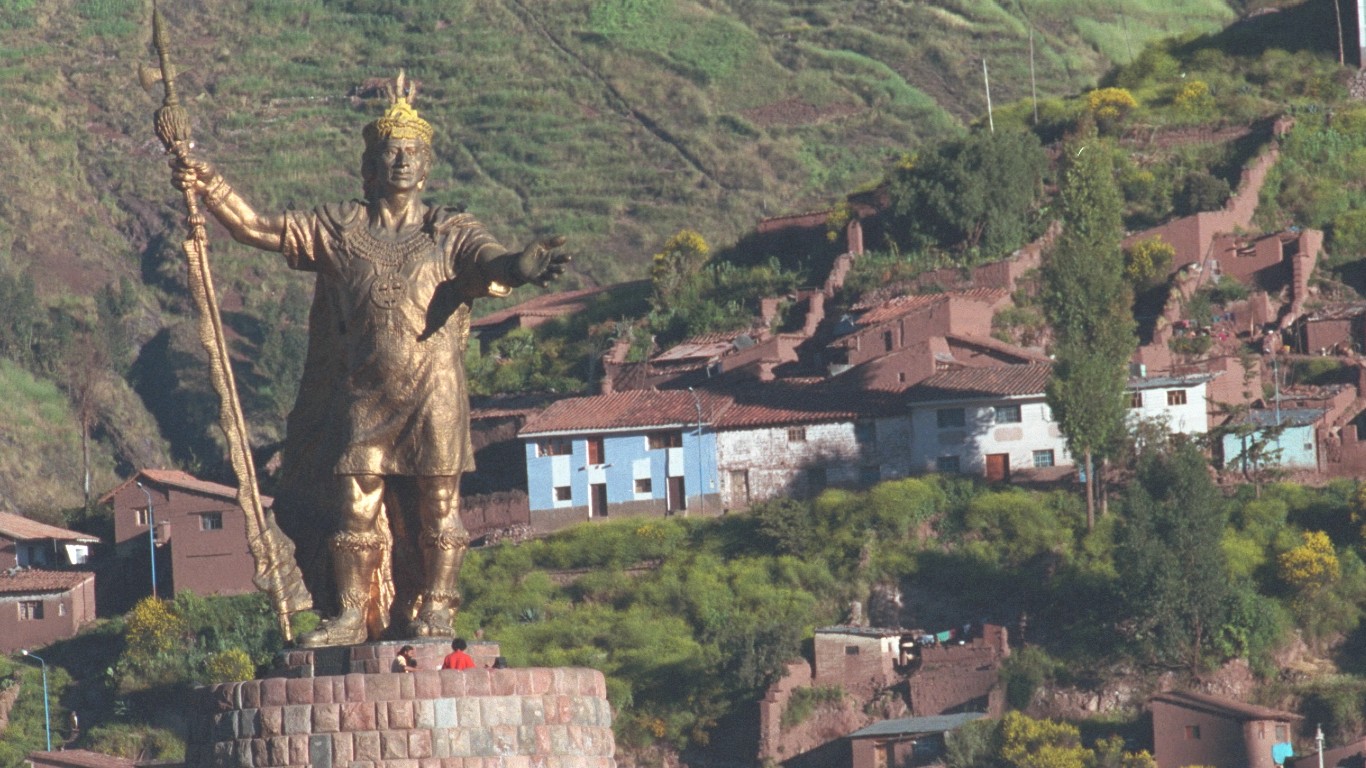 24/7 Wall St.
24/7 Wall St.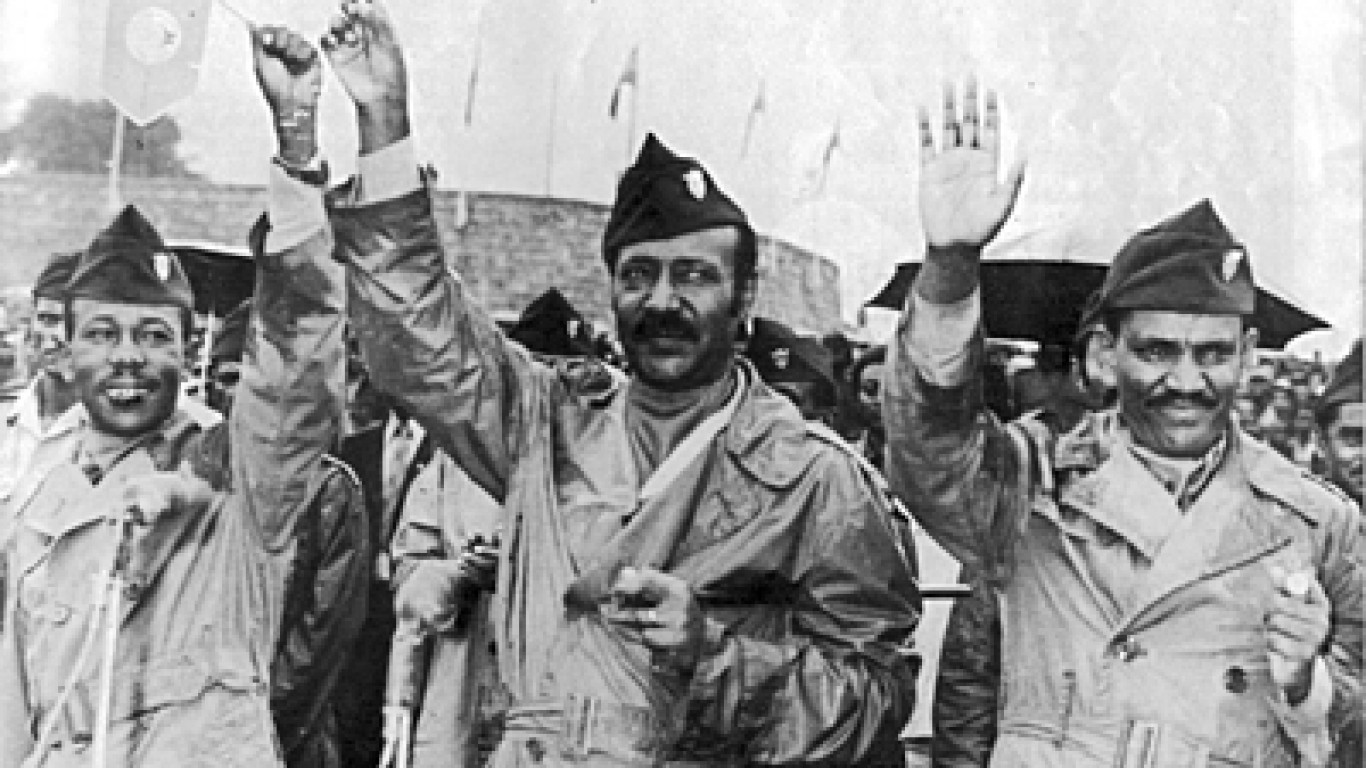 24/7 Wall St.
24/7 Wall St.
